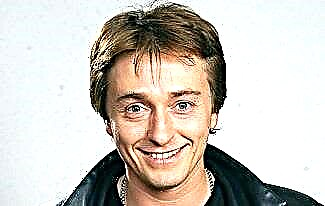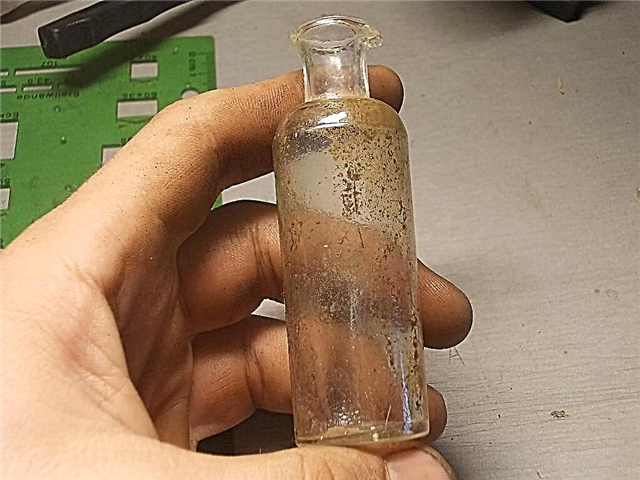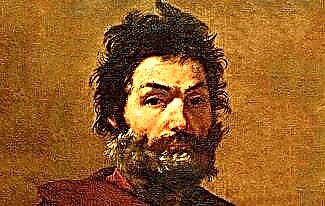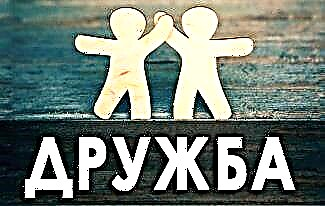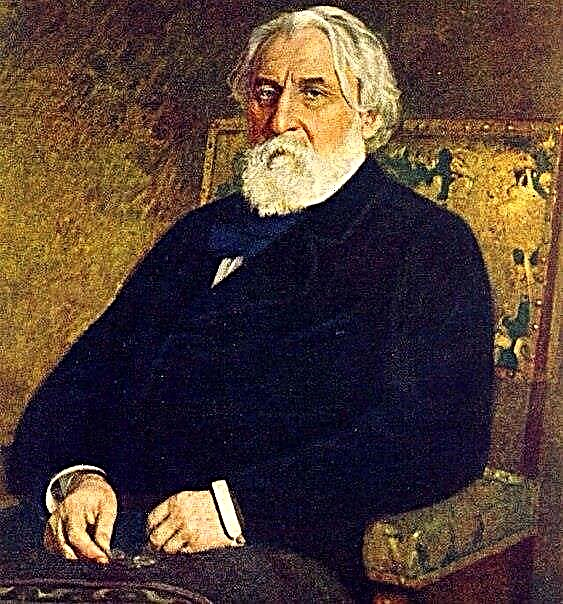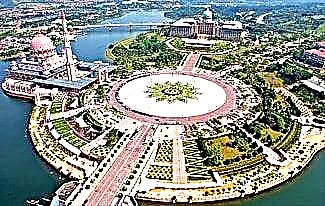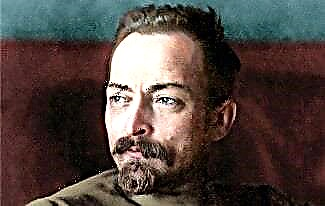To judge about any historical period is a thankless task. It is doubly thankless to judge from the war memoirs. Having studied a sufficient number of notes and memoirs, one can generalize - the higher the title and position of the author, the cleaner and simpler the war looks in his memoirs. Marshals operate at least with divisions, and more often with armies. They do not sit in frozen or wet trenches, and their lives are comparatively rarely directly at risk.
And for some infantry lieutenant, war is endless blood, dirt, and those notorious “three attacks”. And they are also commanders who throw them into an attack on an unsuppressed defense, who did not provide a supply of food or ammunition, and simply did not allow them to sleep.
Both are right - it's all about the point of view. For a general, a company attack on a height is perhaps a reconnaissance in force or a way to open enemy firing points. For the lieutenant (if he is lucky enough to survive this attack) this is a senseless (from his point of view) meat grinder.
In the era of perestroika glasnost, the thesis “filled up with corpses” was thrown into use. Georgy Konstantinovich Zhukov (1896 - 1974) was credited with the quote "Women give birth to new ones." Like, and more soldiers would have put for the sake of Victory, it's not a pity. Through the efforts of various publicists and writers from Zhukov, they tried to make the chief butcher of the war. And JV Stalin appreciated him for the fact that Zhukov would not reckon with the victims if something happened. And the commander attributed his defeats to others, and appropriated other people's victories. And he accepted the Victory Parade only because Stalin was afraid to mount a horse. And the pre-war still characteristic of Rokossovsky, the one in which “is not capable of staff work”, was recalled.

In fact, the documents show that Zhukov repeatedly punished military leaders who did not reckon with losses. And in the critical days of 1941-1942, Stalin would not have plugged the holes on the fronts with Zhukov, if he had not reckoned with losses, because there were weeks when even Stalin considered the reserves of the Red Army to be divisions. And in the conditions of prepared operations, possessing firepower and reserves, Zhukov demonstrated outstanding skill of a commander. His only decision, which can be called senseless and even stupid, was the notorious attack on the Seelow Heights with illuminated searchlights. But even she does not interfere with recognizing G.K. Zhukov as one of the best commanders of the Great Patriotic War.
1. Georgy Zhukov's road to the marshal's baton began on August 7, 1915, when he was drafted into the Russian army. The First World War was going on. Zhukov could have gone to the school of warrant officers - he graduated from a four-year school - but he chose not to mention education, and he was called up as a private.
2. Having started his military career as a private, Zhukov consistently moved up the career ladder. Without missing a single rank, in 1939 he became a corps commander, and a year later, with the introduction of new ranks, an army general.

3. The defeat of the Japanese near Khalkhin Gol against the background of the battles of the Great Patriotic War may look like a minor operation. However, in the army, even though now it was Red, they still remembered the humiliating defeats of 1904 - 1905 and expected a collision with alarm. Zhukov commanded Soviet troops and won a victory, after which the Japanese government requested an armistice.

On Khalkhin Gol
4. After Khalkhin-Gol, Zhukov was the first of the major military leaders to declare that the BT tanks, due to their layout - the gasoline tanks were located aft from the top of the hull - are extremely fire hazardous. At that time, BTs were the main tanks of the Red Army.
5. In 1940, Zhukov commanded Soviet troops in the operation to annex Bukovina. According to the agreement, the Romanian army had to withdraw without taking out transport and industrial equipment. Having learned that the Romanians are still trying to take out something, Zhukov on his own initiative. he blocked the bridges over the Prut with two airborne assault forces, receiving Stalin's praise. In Chisinau, Zhukov received a parade of Soviet troops from Lieutenant General V. Boldin.
6. During the operational strategic games of 1941, Zhukov showed himself well, defeating the troops commanded by the notorious later General of the Army D. Pavlov. During the retreat, Zhukov held back the breakthroughs of the enemy troops, while accumulating reserves on the flank of the breakthrough wedge. After the surrounding counterstrike became apparent, the middlemen stopped playing. Based on the results of the games and the meeting, Zhukov was appointed chief of the General Staff.
7. Already in the first days of the Great Patriotic War, Zhukov organized a powerful counterattack against the advancing Nazi troops near Dubno. The Germans were forced to stop and begin to transfer reserves to help the troops of the first echelon. The success of the counterattack turned out to be partial - the Red Army units did not have time to fully concentrate, and the Germans dominated the air. However, a few days were won, which in 1941 were worth their weight in gold.
8. At the end of July 1941, G. Zhukov was removed from the post of Chief of the General Staff and appointed to command the Reserve Front. The front was formed in order to cut off the Elninsky ledge of the front line. The operation was carried out successfully from the point of view of military science - the ledge was cut off the territory occupied. But the Germans managed to withdraw most of the troops and all heavy equipment, so the Red Army did not capture anything except the territory. Nevertheless, this was the first active offensive operation of the Red Army during the war.
9. Zhukov really saved Leningrad from capture on the move. But not by his command of the troops of the Leningrad Front in the fall of 1941, but earlier, when he transferred the 1st Panzer Division and the 10th Mechanized Corps to Leningrad. For the Germans, the appearance of these units in the area of the breakthrough came as a surprise.
10. G.K Zhukov played an important role in the counteroffensive of the Red Army near Moscow. Moreover, regardless of where the headquarters sent him, the requirements for the command were approximately identical: to narrow the front of the offensive, not to attack settlements head-on, not to attack the enemy's field fortifications (after Hitler's stop order, the Germans retreated in a more or less organized manner to the prepared lines ). And practically all commanders sinned by such actions.

Before the counteroffensive near Moscow
11. For over 30 years I have been criticizing the commander for carrying out the Rzhev-Vyazemskaya operation. The main complaint was that it was necessary to gather the troops into a single fist and hit the enemy with all his might. Military history, like its civilian sister, does not like the subjunctive mood. But there is a good analogue of the Rzhev-Vyazemskaya operation. In the spring of 1942, the troops gathered in a single fist really hit the enemy with all their might. As a result, the Germans cut off the breakthrough, intercepted communications and defeated the South and Southwestern fronts, reaching the Volga and the Caucasus. And during the Rzhev-Vyazemskaya operation, Moscow was behind Zhukov.
12. In early September 1942, Gezha Zhukov was appointed first deputy commissar of defense and sent to Stalingrad - the city could fall in a matter of hours. It was not only the heroism of its defenders that helped to defend Stalingrad. Throughout the autumn Zhukov and K. Moskalenko organized strikes against the enemy northwest of the city, preventing the Germans from concentrating all their forces on strikes in the city.
13. Throughout the second half of 1943, G. Zhukov coordinated the actions of the fronts, which first defeated the enemy not in the Kursk Bulge, and then threw him back to the Dnieper.
14. Back in 1916 G. Zhukov received a concussion. The second time he was shell-shocked in 1943 in preparation for the Battle of Kursk. After that, Zhukov was practically deaf in one ear.
15. In April 1944, after a series of successful operations on the Right Bank of Ukraine, Zhukov became the first holder of the Victory Order.
16. There was no race of IS Konev and G. Zhukov for the capture of Berlin. Konev's troops, with the help of a quickly but well-prepared defense, did not let the German reserves into Berlin, inflicting heavy losses on them. The capture of Berlin by Zhukov followed from the operational situation.
17.> It was G. Zhukov who on May 8, 1945, accepted the surrender of Nazi Germany in Berlin. After the Victory, Zhukov became the head of the military and civil administration of Berlin and the commander of the Group of Soviet Forces in Germany.

18. In 1946 - 1952 Zhukov was in disgrace. He was accused of Bonapartism and, to put it mildly, excesses in the export of trophies from Germany. Marshal of Victory was sent to command first the Odessa, and then the Ural military district.
19. The order, according to which the Odessa policemen and the military who helped them were given the right to shoot the suspects in banditry, most likely never existed. Nevertheless, crime in Odessa was quickly suppressed, and Zhukov later received the badge of "Excellence in the Ministry of Internal Affairs". Probably, Zhukov was simply able to establish effective cooperation between police and military.
20. The return of Georgy Konstantinovich to Moscow took place after the death of Stalin. He was appointed Deputy Defense Minister and elected to the CPSU Central Committee. In 1955, Zhukov became Minister of Defense. However, three years later, another, last disgrace followed - he was accused of adventurism and political insolvency and was dismissed. Some rehabilitation followed after the death of N. Khrushchev, but the marshal never returned to power.

N. Khrushchev did not forget good to anyone
21. In 1965, G. Zhukov was invited to a ceremonial meeting dedicated to the 20th anniversary of the Victory. The hall was greeted by the appearance of the marshal of an endless ovation. Such a reception, it seems, frightened the Politburo and personally Leonid I. Brezhnev, and Zhukov was not invited to major events anymore.
22. In the last years of his life, Zhukov wrote memoirs, met with journalists and readers and fought numerous diseases. Marshal died on June 18, 1974, after lying in a coma for about a month.
23. Zhukov had a serious relationship with 4 women, he had 3 daughters. Georgy Konstantinovich married only twice.

With wife Galina and daughters
24. For 15 years, G. Zhukov was the only four times hero of the Soviet Union in history.
25. Zhukov is the hero of dozens of feature films and TV series. Most often, his role was played by Mikhail Ulyanov (more than 20 films). In addition, the image of the Marshal of Victory was embodied by Vladimir Menshov, Fyodor Blazhevich, Valery Afanasyev, Alexander Baluev and other actors.


